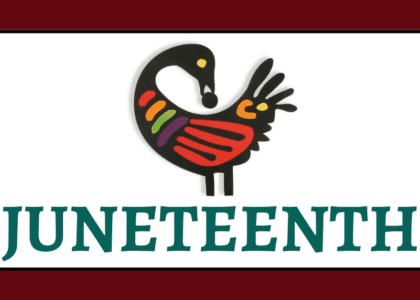By Stan Dotson
As a student of narrative theology, it is fascinating to me to hear different narratives that various Cubans employ to make sense of their lives. While they share many core values, the different stories my friends tell fall all across the ideological spectrum. The story of “a liberating revolution” victimized by a cruel blockade is one well-worn narrative, while the opposing story of “a brutal dictatorship” depriving people of human rights is another. There are other stories in between. Part of my learning here is to listen respectfully to whatever story is being told, to deepen my understanding of the particular narrative that is being used to bring meaning to life, without pre-judgment.
I’m also learning how to better tell my own story. As a U.S. citizen living in Cuba, my framing of the story has been greatly influenced by the “Disobedient Stories” of Analia Kalinec from Argentina. As a young adult she discovered that her father, who had always treated her with great affection and love, had secretly been active in the genocide taking place in her country’s “Dirty Wars.” Ever since this hidden story of her father came to light, Analia has struggled to make sense of her own life and has sought ways to relate to the victims of her father’s horrific actions.
The idea of discovering that one’s padre (in my case, one’s patria) has lived a double life, generating love and affection and bestowing generous gifts on the one hand, while simultaneously enacting horrific violence on the other, struck a chord with me. So, here’s the disobedient (unpatriotic) story that I have come to work with since living in Cuba, a story born out of my own struggle to make sense of life as I have experienced it as a child of empire.
* * * * *
Picture a single father raising many children. This father, whom I will call “Patria,” is seen by many of his children, and by many people around the world, as a superhero. He is big, strong, and hard-working and has provided well for his children, bestowing many good gifts on them, granting them access to a comfortable and privileged life that Solomon in all his glory could not have imagined. For sure, some children get better treatment and easier access to privilege than others; some suffer severe mistreatment, and this inequality motivates much of the work for social justice within the family. The children rarely question how Patria ever got to be so big and strong, or how he came to control so many riches. The point is for all the children to have equal access to his treasure trove.
Over time, though, more and more of the children have come to discover, to their great horror, that Patria is not the exceptionally good man that legend portrays him to be. For behind all his heroic deeds and generosity is a long history of abuse and violence. In Patria’s neighborhood there live many women, smart, talented women, with their own resources and riches. Since his youth, Patria has felt compelled to abuse these women, to control and dominate them, to steal from them and employ their wealth for his own designs. He has left a long line of battered women in his wake. Some of these women found the only way to stop the constant violence was to appease Patria, to become part of his “harem” and allow him to control their goods for his own purposes. Others have resisted.
To put it another way, the construction of a culture of peace, while built on the bedrock of common premises (faith, hope, love…), is going to be a multi-storied building. Maybe the biblical call to “edify” is in essence a call to build the capacity for listening to and respecting the diverse stories that arise out of those common premises.
One such resistor, whom I will call Matria, lives just across the river from Patria. She is mother to some of the most beautiful, intelligent, and talented children imaginable. But from an early age, Matria began suffering from her neighbor’s traumatizing abuse and violation; his persistent efforts to control and dominate her continued for decades. Then came a day when she decided to say, “no more,” and she fiercely rejected his every move toward her. Such public defiance infuriated Patria. He has spent the rest of his life exacting vengeance, punishing her with poverty, to this day denying her access to the resources she needs to feed her children.
Add to this another of Patria’s domination tactics: he constantly sends messages to Matria’s children, telling them over and over how bad a mother she is, how inferior she is. He even encourages Matria’s children to cross the river and come live with him, to abandon their mother and thereby gain access to the same generous benefits and privileges his own children enjoy. Some of them do, oblivious to the long history of violence and abuse that generated those advantages. Some are even eager to join him in his continuing domination of his neighbors.
As is true of many battered women, Matria has suffered great psychological damage from this history of assault. Her traumatized nature has made it so that she is not the best mother; in fact, she can be abusive to her own children, and even with her best intentions she makes bad decisions that adversely affect them. Matria has long been obsessed with denouncing Patria and his continuing violence, repeating the mantra of her victimization so often that even her own children have grown weary of hearing it. Some even think that she uses the story of his abuse as a convenient cover to justify every mistake she makes.
For the children of Patria, coming to terms with his violent and monstrous shadow side is an anguishing journey. How do you live your life with such knowledge? Denouncing your padre’s ways never seems enough. Befriending the children of Matria can make one feel good, but such friendships are fraught with danger, always at risk of reinforcing dynamics of exceptionalism and dependency. For sure, untangling oneself from the thick knot of benefits and privileges and advantages accrued from Patria’s history of violent domination, that can be a good, albeit complicated, place to start.
* * * * *
My disobedient story does not leave me with much guidance on how to live my life. It is depressing to say the least. As a person of faith, though, I am glad to remember that the narratives the world offers us to make sense of our realities—those of revolution, or dictatorship, or hidden monstrosities lurking beneath facades of abundance and benevolence—these are not the only stories we have to choose from. It is helpful to remember that the children of Patria and those of Matria also have a shared story; we have the gospel story, the story of Jesus, the incarnation of Divine love calling us to join the movement toward reconciliation and peace.
No doubt, as we superimpose this gospel story over that of our cultural stories, we will each read the Jesus story through our own lens. To put it another way, the construction of a culture of peace, while built on the bedrock of common premises (faith, hope, love…), is going to be a multi-storied building. Maybe the biblical call to “edify” is in essence a call to build the capacity for listening to and respecting the diverse stories that arise out of those common premises. And within that multi-storied edifice, we might discover that we are not trapped in our own particular story; we can venture up and down the staircase and open the door to someone else’s story. And maybe, as I walk in and out of those other stories, I will finally figure out what to do with mine.

Stan Dotson has served as Associate Pastor of the First Baptist Church in Matanzas. He and his spouse Kim love their work of building bridges between Alliance and Fraternity of Baptists churches, and they also love engaging in creative ministries of music, drama, and story-telling.




Recent Comments